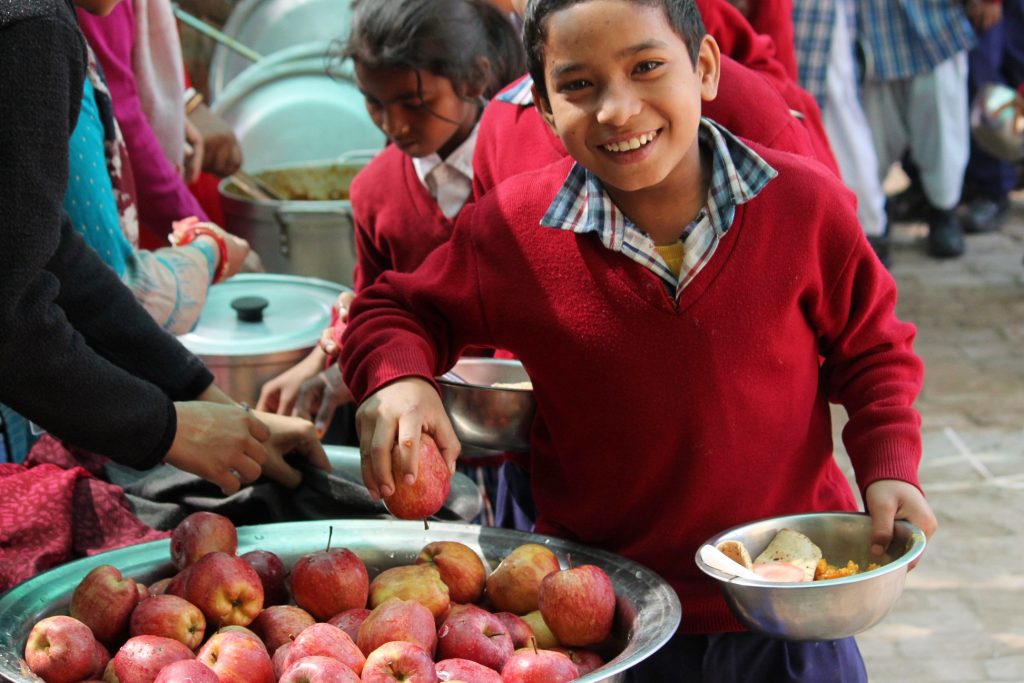India: Education & Nutrition Transformation CSR Investment Opportunities
India: Education & Nutrition Transformation
CSR Investment Opportunities & Implementation Partnership with Responsenet
₹18,824 Cr CSR Opportunity: How to Transform 24.8 Crore Lives Through India’s Education & Nutrition Revolution | Food & Nutrition | Food For Education | Mid Day Meal India | NGO | CSR
🎯 Strategic CSR Investment Opportunity: Partner with Responsenet for maximum social impact
🚀 Why Invest in India’s Education & Nutrition Sector Now?
✅ Massive Market Size:
24.8 crore students across 14.72 lakh schools
98 lakh teachers nationwide
24.8 crore students across 14.72 lakh schools
98 lakh teachers nationwide
✅ Government Alignment:
NEP 2020 implementation creating demand
POSHAN Abhiyaan reaching 80 million beneficiaries
NEP 2020 implementation creating demand
POSHAN Abhiyaan reaching 80 million beneficiaries
✅ CSR Mandate:
Education: 33% of total CSR funds (₹10,085 Cr)
Healthcare/Nutrition: 29% share (₹8,739 Cr)
Education: 33% of total CSR funds (₹10,085 Cr)
Healthcare/Nutrition: 29% share (₹8,739 Cr)
✅ High ROI Proven:
Every ₹1 invested in nutrition returns ₹18
Education CSR showing measurable impact
Every ₹1 invested in nutrition returns ₹18
Education CSR showing measurable impact
₹18,824 Cr
Combined CSR Investment in Education & Nutrition (2023-24)
24.8 Cr
Students in India’s Education System (World’s 2nd Largest)
50%
Higher Education GER Target by 2035 (NEP 2020)
80M
Beneficiaries Reached by POSHAN Abhiyaan
📚 Education Sector: Historic Progress & Investment Opportunities
Primary Education GER: 99.2% Achievement
✓ Near Universal
✓ Near Universal
Secondary Education GER: 56.2% (Gap = Opportunity)
⚡ High Potential
⚡ High Potential
Higher Education GER: 26.3% → Target 50% by 2035
🎯 Massive Gap
🎯 Massive Gap
CSR Opportunity: 24% gap represents massive investment potential for skill development, digital learning, and infrastructure
🌟 NEP 2020 Implementation Creating Massive CSR Opportunities
5-3-3-4 Structure: Complete curriculum redesign
Digital Learning: Technology integration mandate
Skill Development: Vocational training emphasis
Teacher Training: Professional development focus
💰 CSR Investment Trends: Education Leading the Way
Education & Skills Development
₹10,085 Cr (33% of Total CSR)
₹10,085 Cr (33% of Total CSR)
Healthcare & Nutrition
₹8,739 Cr (29% of Total CSR)
₹8,739 Cr (29% of Total CSR)
Vocational Skills Training
₹1,164 Cr (Growth: +12.7%)
₹1,164 Cr (Growth: +12.7%)
🎯 CSR Allocation Insight: 62% of total CSR funds (₹18,824 crores) go to Education & Nutrition sectors, making them the most preferred investment areas for corporate social responsibility.
🍎 Nutrition Sector: POSHAN Abhiyaan Progress & Challenges
| Nutrition Indicator | NFHS-4 (2015-16) | NFHS-5 (2019-21) | Target 2025 | CSR Opportunity |
|---|---|---|---|---|
| Child Stunting (0-5 years) | 38.4% | 35.5% | 25% |
High
|
| Child Wasting (0-5 years) | 21.0% | 19.3% | 15% |
Critical
|
| Anemia in Women (15-49) | 53.1% | 57.0% | 40% |
Urgent
|
| Low Birth Weight | 21.4% | 18.7% | 15% |
Moderate
|
⚠️ Implementation Challenge = CSR Opportunity
Budget Utilization Gap: Only 56% of ₹5,312 crore allocated under POSHAN Abhiyaan was utilized (2019-2021)
CSR Solution: Private sector partnership can bridge implementation gaps and accelerate nutrition outcomes
🔮 Future Trends & Investment Outlook (2025-2030)
📱 Digital Learning Revolution
- EdTech market projected to reach $10.4 billion by 2025
- NEP 2020 mandating technology integration in all schools
- Rural digital divide creating CSR investment opportunities
🎓 Skill Development Focus
- 400 million youth need reskilling by 2025
- Industry 4.0 creating demand for new skills
- CSR vocational training programs growing 12.7% annually
🌱 Nutrition Technology Integration
- POSHAN Tracker digitizing nutrition monitoring
- Fortified food programs scaling nationwide
- Community-based interventions showing high ROI
🤝 Public-Private Partnerships
- Government seeking implementation partners for scale
- CSR compliance driving corporate engagement
- Outcome-based funding models emerging
🤝 Why Partner with Responsenet for CSR Implementation?
🎯 Proven Implementation Expertise
- Deep understanding of government schemes and policies
- Track record in education and nutrition program delivery
- State-wise implementation capabilities across India
- Technology-enabled monitoring and evaluation systems
📊 Data-Driven Impact Measurement
- Real-time monitoring dashboards for CSR compliance
- Outcome-based reporting aligned with SDG indicators
- Third-party impact assessment and verification
- Regular stakeholder engagement and feedback systems
🌐 End-to-End Program Management
- Program design and strategy development
- Stakeholder mapping and partnership facilitation
- On-ground implementation and quality assurance
- Sustainability planning and capacity building
⚡ Rapid Scale & Innovation
- Innovative delivery models for maximum reach
- Technology solutions for efficient implementation
- Cross-sector convergence and resource optimization
- Rapid scaling capabilities across multiple states
🎯 Strategic CSR Investment Recommendations
🔥 HIGH PRIORITY (Immediate ROI)
Digital Learning Infrastructure
Gap: 50% schools lack computer labs
Investment: ₹5-10 Cr per state
Gap: 50% schools lack computer labs
Investment: ₹5-10 Cr per state
Community Nutrition Centers
Anemia affects 57% women
Investment: ₹2-5 Cr per district
Anemia affects 57% women
Investment: ₹2-5 Cr per district
Teacher Training Programs
NEP 2020 implementation gap
NEP 2020 implementation gap

